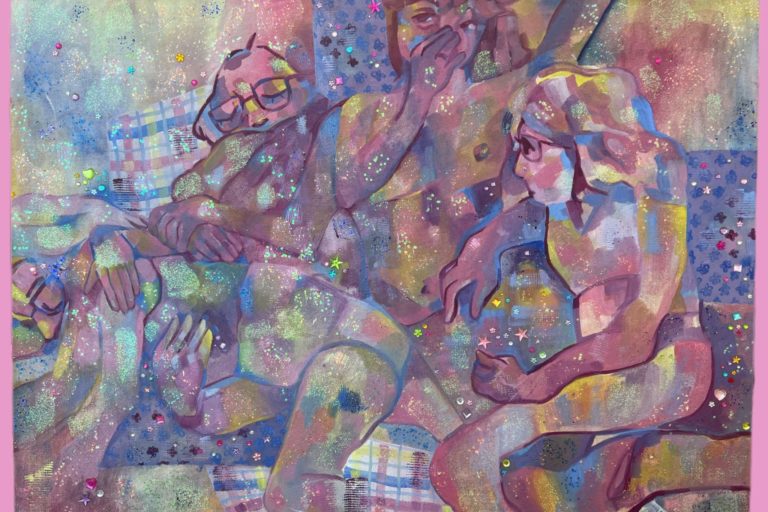
Four colleagues at the MSU Museum, including a Professor in the Department of Art, Art History and Design, recently received the prestigious Chicago Folklore Prize from the University of Chicago for their 2016 book, Quilts and Human Rights.
Each year, the Chicago Folklore Prize is presented to authors of a book-length work that explores the intersection between folklore and scholarship.
This year, the award went to Quilts and Human Rights, which was written byMarsha MacDowell, Professor in the Department of Art, Art History and Design and MSU Museum Curator of Folk Art; Mary Worrall, MSU Museum Assistant Curator; Lynne Swanson, MSU Museum Collections Manager; and Beth Donaldson, MSU Museum Traveling Exhibit Service Manager.
Quilts and Human Rights examines the relationship between quilting and human rights advocacy across time and the ways in which quiltmakers use their art to tackle tough topics.
“The authors of Quilts and Human Rights, veterans of the indexing and documentation of quilts, provide a compelling interpretation as well: a story of the threads that connect antislavery activism, women’s suffrage, LGBTQ rights, and other human rights movements across the world and through history,” the Chicago Folklore Prize explained at the awards ceremony. “They deftly integrate ideas and techniques from folklore and folklife, art history, women’s studies, museum studies, and human rights and humanitarian studies to create a compelling book that falls outside the usual academic norms.”
Typically, recipients of the Chicago Folklore Prize have written about male-dominated traditions, but Quilts and Human Rights broke that pattern.
“This book is about material culture that is overwhelmingly by women and a form of art that has often been misunderstood as a quaint, inconsequential, passive aspect of women’s culture,” MacDowell said.
A book review published by World Literature Today, states: “Quilts and Human Rights leaves the reader wanting more: more scholarship on these affecting works; more awareness for the critical issues they address; and, most of all, more tolerance, more understanding, and more value for human life in our world today.” The complete book review can be found on the World Literature Today website.
MacDowell accepted the Chicago Folklore Prize on behalf of herself and her fellow authors at the opening ceremonies of the American Folklore Society annual meeting on October 18.
Many of the quilts illustrated in the book are part of a unique collection of quilts related to human rights at the MSU Museum; these collections are regularly used for diverse teaching and research activities. In addition, the MSU Museum’s Traveling Exhibition Services program offers a Quilts and Human Rights exhibition to museums and galleries across the United States. Currently, the exhibition is at Northern Illinois University where it is anchoring the university’s thematic year on human rights.
Also, the quilt displayed on the cover of Quilts and Human Rights is hanging outside of President Lou Anna Simon’s office, and another quilt featured in the book soon will be on display at Cowles House.


